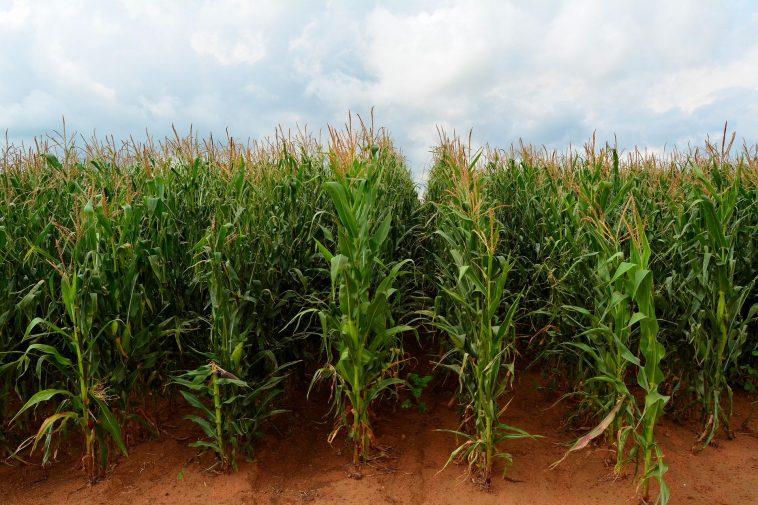The world is undergoing great shocks due to climate change. Every drop of water is more important than ever before. Agriculture has become more scientific, and farmers that depend on rainfall to water their crops need to ensure that every drop is utilised to the maximum.
To successfully grow a crop, a farmer needs a lot of inputs. These include good quality seed, fertilisers, water, and crop protection products.
Zambia has become an important country in seed production for the region. Seed for different crops, especially maize, is grown in this country and exported to several countries.
To produce quality seed, farmers need to ensure that it does not have diseases and does not harbour post-harvest pests such as the larger grain borers and weevils. There are restrictions to import maize seed from countries like Kenya because of some dangerous diseases like maize lethal necrotic virus (MLN), which is caused by a virus called maize chlorotic virus (MCMV).
Viral diseases are normally transmitted by vectors that injects saliva contaminated with viruses in the process of feeding on the crop. It is, therefore, important to control the population of vectors that transmit this deadly disease. Viral diseases in plants or crops, just like in humans, have no cure.

In a world struggling with climate change that affects food security, the emphasis is placed on improved production.
Control of viral diseases
Whether the areas are contaminated with vectors that transmit viral diseases or not, production of maize for both seed and grain must continue.
The question to answer is how do farmers protect their crops against such deadly diseases? The best solution available is to control the population of vectors and to protect the crop against their attacks.
Normally, farmers would spray their crops once they see aphids or grasshoppers attacking their crops. However, this is a reactive strategy, or firefighting, as many farmers would call it. The danger of this is that some plants would have been infected already. This means that the plant population will diminish because infected plants will die.
Several technologies can be used to control these vectors. Some of the products on the market are ACTARA and DENIM Fit from Syngenta. There are other solutions too that can be used.
It should be noted that sometimes spraying foliar products might impact on other beneficials depending on when and how you spray. The unfortunate part is that control of the vectors using natural enemies is not very effective, especially when we are potentially dealing with a viral disease. It is important to nip it in the bud before it is spread.
This disease has the potential to cause famine and hunger in any community or country if not well managed.
The most effective way to control such vectors is to ensure that the seedling is protected from day one. The protection should start from the time the seed is planted, because we are not sure when the aphids, for instance, will attack our crops.
One of the best solutions that fits into this regime is the use of seed treatments. This will protect the seed from day one when it is planted up to a particular period in the growth stage of the crop. One such solution is FORTENZA Duo.
FORTENZA Duo is a combination of two products that act synergistically to control most of the soil, foliar and post-harvest pests. This product is activated on seed just before planting and offers protection up to four weeks after planting. It offers control against soil pests such as white grub, false wireworms, cutworms, corn rootworms and many other soil pests. It also protects your crop during the first four weeks of establishment from the devasting fall armyworms, aphids, thrips, and grasshoppers.
Some of these foliar pests are very important in the transmission of this deadly disease. Therefore, by controlling such vectors, we are in a way managing deadly diseases like NLD and MSV.
Productivity tools
With advent of climate change and rising costs of inputs like fertilisers, crop protection products and seed, global food security is at risk. Countries that will be adversely affected are mainly those from the third world like ours. It is, therefore, prudent that we effectively put to use crop production.

Proactive measures to deal with pests threatening your crop is better than a reactive response.
In agriculture, the emphasis will be more on productivity than ever before. This will entail sensible management of the land through soil health practices, use of proven technologies that help to improve production, and analysing the cost benefit analysis of each input.
Again, FORTENZA Duo scores highly in helping to improve productivity. CRUISER, one of the products in FORTENZA Duo, has been proven to help develop an effective root system for the plant. This helps the plant to grow with vigour besides controlling various soil and foliar pests.
At the early establishment of a plant, you want it to grow strongly so that it can fend off disease or pest attacks besides exploring enough soil mass to extract water and nutrients. These are the basics of crop production.
Therefore, we urge farmers to try this technology which the small-scale farmers that are under Farmer Input Support Program (FiSP) have appreciated for five seasons now. Zambia has been food secure as well as seed secure; we need to continue on this road to success and prosperity.
For more information about solutions to protect any type of seed, visit www.syngenta.com or contact Felix Tembo, Seedcare Syngenta Key Account Manager for Southern Africa, by sending an e-mail to felix.tembo-1@syngenta.com, or call +260-967-382-102.









